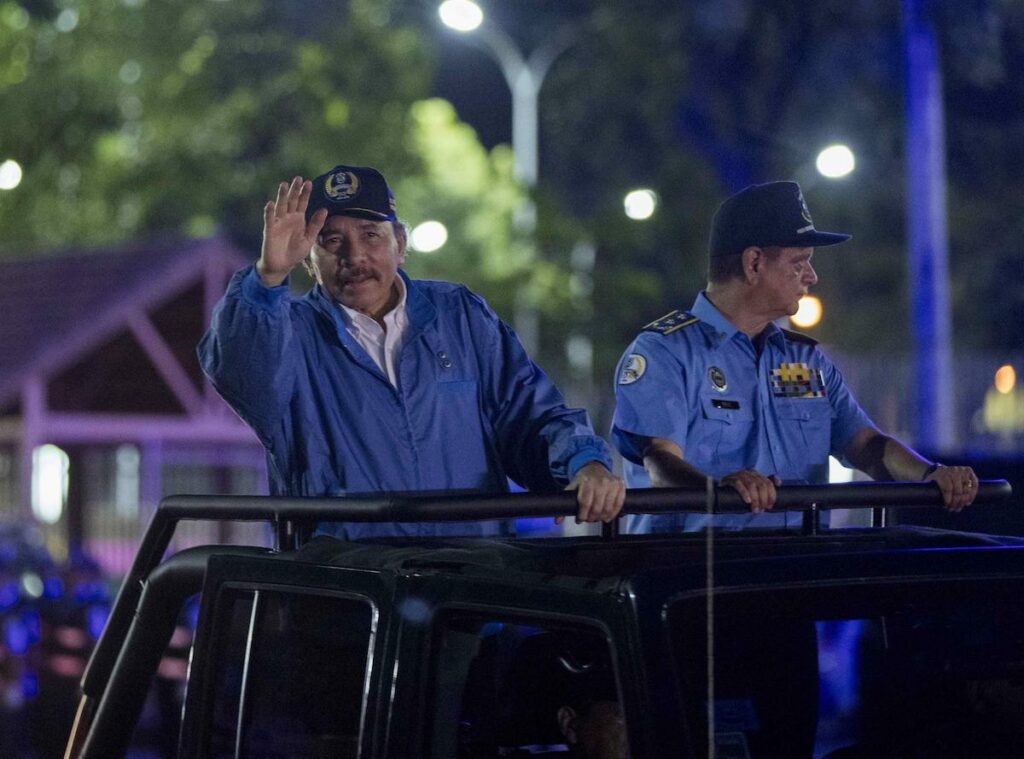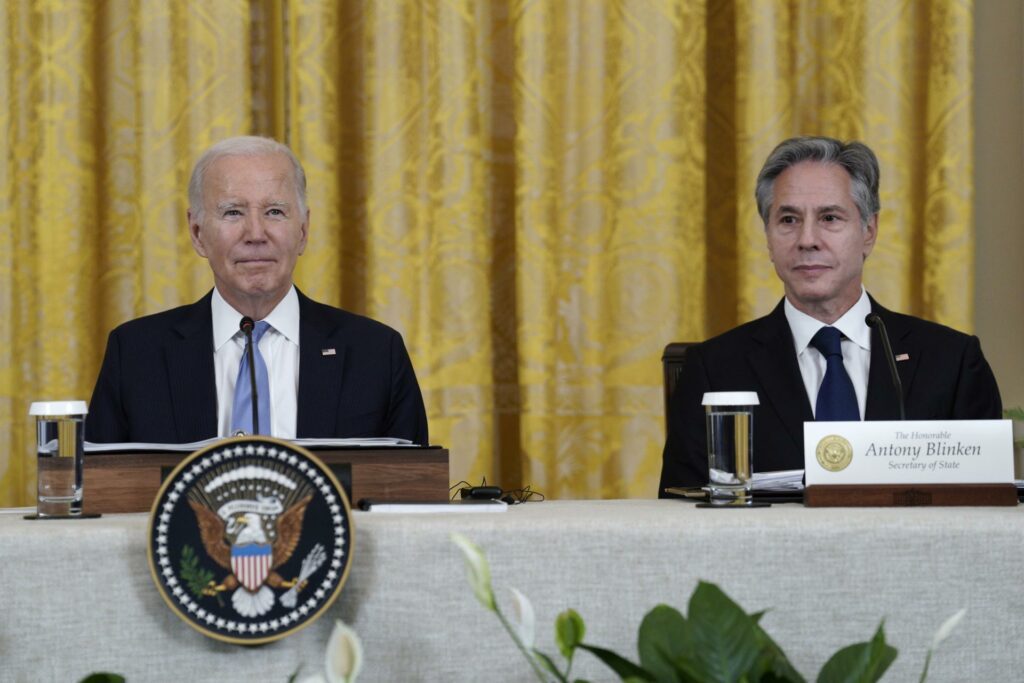A team of scholars published a study in the editorial section of the University of Cambridge, England, which concludes that Nicaragua is a narco-state.
According to the specialists, this is explained by “the organizing role of the state (of Nicaragua) in drug trafficking, through its institutions and its high-level political officials.
In other words, in this country the regime of Daniel Ortega and Rosario Murillo controls drug trafficking, according to the researchers’ thesis.
The research is titled “Dismantling the Myth of Nicaraguan Exceptionalism: Crime, Drugs and the Political Economy of Violence in a Narco-State“. The researchers warn that the narco-state in Nicaragua is highly efficient and deeply rooted.
They add that it is unlikely to be dismantled in the short term. Even a return to democracy could mean a breakdown of state control over drug trafficking, and this “could unleash new forms of violence”.
The study was jointly published by Julienne Weegels, assistant professor of Latin American Studies, the Center for Latin American Research and Documentation (CEDLA), and the University of Amsterdam; Dennis Rodgers, professor at the Center for Conflict, Development, Peacebuilding and the Graduate Institute of International and Development Studies, Geneva; and José Luis Rocha, associate researcher at the Universidad Centroamericana (UCA) “José Simeón Cañas”, El Salvador.
The three academics and researchers involved in the study have extensive experience studying gang violence and drug trafficking in Nicaragua. Over several years, they conducted ethnographic studies in different neighborhoods of Managua, and interviewed prisoners and former prisoners in three prison facilities across the country, who described how drug trafficking works.
Police recruit traffickers to “work” together
To explain how corruption has become institutionalized to the point that some police officers seek to establish a working relationship with drug traffickers, the study cites an interview with a trafficker in Managua, under the pseudonym “Ronnie,” who says that after he was arrested, the officer who caught him told him, “Why don’t you come work with us?”
“There’s a guy on your street who works with us, who tells us everything – why don’t you do that (too)? We’ll pay you, instead of you paying us. It’s better, because otherwise we’re going to take strong measures against you, you’ll go to prison for a long time”.
Another trafficker quoted in the study said that, after being captured, the police interrogated him to get him to reveal the name of his supplier, “to establish a working relationship with them”.
The trafficker said that “the police know that where there is a bit, there is an ounce, and where there is an ounce, there is a kilo, and that is where it gets interesting, because where there is a kilo, there are several kilos more, and they want to get in on that.”
Researchers warn of “systematic corruption”

In 2015, research by study co-author Professor Julienne Weegels pointed to systemic corruption by state officials in Nicaragua’s criminal justice chain.
Weegels spoke with former prisoners who in most cases were convicted of drug trafficking offenses. They noted how police officers solicited bribes in exchange for dropping charges or, when that was not possible, district attorneys or local judges accepted or demanded bribes in exchange for their release or for lesser sentences.
The investigation is supported by different cases published by the media, in which the link between the Nicaraguan state and drug trafficking has been revealed.
For example, the attack against Nicaraguan drug trafficker Henry Fariñas, in which Argentine singer Facundo Cabral was killed in 2011, revealed the relationship Fariñas had with Police Commissioner General Carlos Palacios, who was the right-hand man of then Police Chief Aminta Granera.
This case also uncovered how the Supreme Electoral Council (CSE) gave Nicaraguan ID cards to known drug traffickers.
Other publications have reported how Nicaragua releases the highest number of convicted drug traffickers each year compared to other Central American countries.
In 2010, a Wikileaks cable suggested that the Sandinista Front received money from international traffickers to finance electoral campaigns, “in exchange for ordering Sandinista judges to allow traffickers captured by the police and army to be released.”
Nicaragua included in list of top drug trafficking countries

Last month, U.S. President Joe Biden included Nicaragua in a list of the world’s top drug transit and production countries.
The report clarifies that a country’s presence on this list “is not necessarily a reflection of its government’s anti-drug efforts or level of cooperation with the United States,” and this inclusion calls into question the official figures on the fight against drug trafficking that are often highlighted by national authorities.
For example, Nicaragua confiscated the least amount of drugs in 2021 (4.5 tons, mostly cocaine) out of the 250 tons confiscated in all Central American countries. While the White House points out that Nicaragua is one of the countries with the highest drug presence (transit or production), the Nicaraguan Police is the one with the fewest drug seizures in the entire region.
An investigation by DIVERGENTES revealed that in the past five years, the police have increased cash confiscations, while cocaine confiscations have decreased.
A source linked to the high command of the National Police revealed in this report that this institution carries out “some staged” cash and drug busts in order to demonstrate effectiveness before the authorities, the population and international organizations. Meanwhile, the millions of dollars that appear “abandoned” in different parts of the country, “many times are bribes given by organized crime” to the police.
They question the effectiveness of the “containment wall” strategy
One of the main reasons for publishing the study was that the researchers aim to dismantle the narrative of the Daniel Ortega and Rosario Murillo regime that Nicaragua is an exception to criminal violence in the Central American region.
The official version relies on the absence of gangs and transnational drug trafficking organizations operating in Nicaragua, and portrays the National Police as an efficient and professional force. However, the study proposes an alternative explanation as to why this scenario is so ideal.
The document concludes in summary that in Nicaragua there is a political agreement around drug trafficking that is supported by police and judicial corruption and “a mafia state”.
The researchers emphasize that “Nicaragua’s relative peace,” in comparison with the Northern Triangle countries, is mainly due to the fact that the Nicaraguan state “established an agreement with political, business and criminal actors around the drug trade”. In other words, “the narco-state controls drug trafficking, which in other countries is a field of dispute and conflict between different actors”.
A specialist in national security issues -who asked for his identity to be kept confidential- considers that this study, added to the recent reports on the increase of drug trafficking and the high risk of money laundering, demonstrate the ineffectiveness of the supposed policies of national security and the fight against international organized crime, called “containment wall” by the regime.
This strategy has numerous human and equipment resources for land, air and maritime patrolling, with bases at key border crossings. It is usually the main argument of the dictatorship to demand the withdrawal of US sanctions against its political and economic operators.
The “regime’s” ineffectiveness in the fight against drug trafficking
The security specialist considers that the Cambridge University report reflects “the ineffectiveness of the government’s strategy to combat drug trafficking” in Nicaragua.
He adds that the regime’s strategy has been to reinforce the police in terms of funding and number of personnel, in order to have a presence throughout the national territory. “This seems to have given discretionary power to the police to take power over drug traffickers in Nicaragua,” says the expert.
According to the researchers, Nicaragua’s narco-state is similar to the one that existed in Mexico between 1930 and 2000, when it was governed by the Institutional Revolutionary Party (PRI), which “strictly controlled the state, partly in collusion with drug traffickers.”
However, after PRI lost power in 2000, this control vanished and “violence exploded”. The number of homicides increased exponentially and “performative” murders became a distinct hallmark of contemporary Mexican society.





